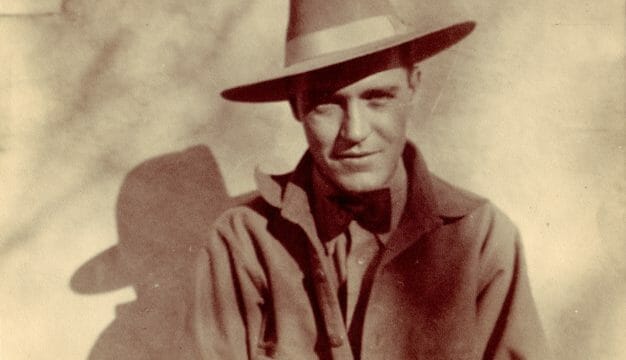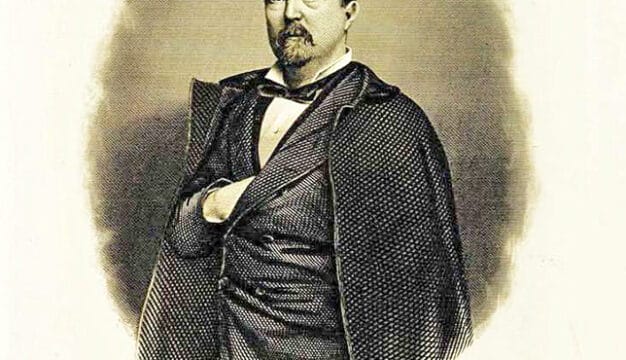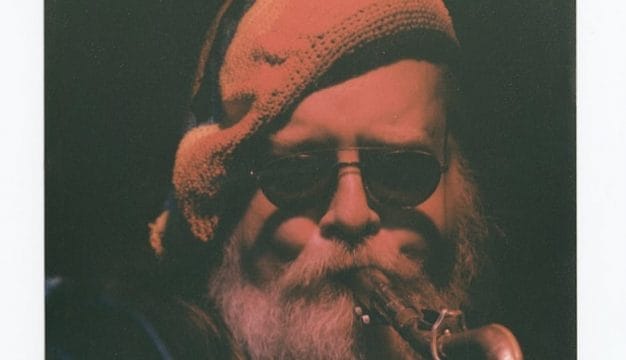Amelia Boynton Robinson
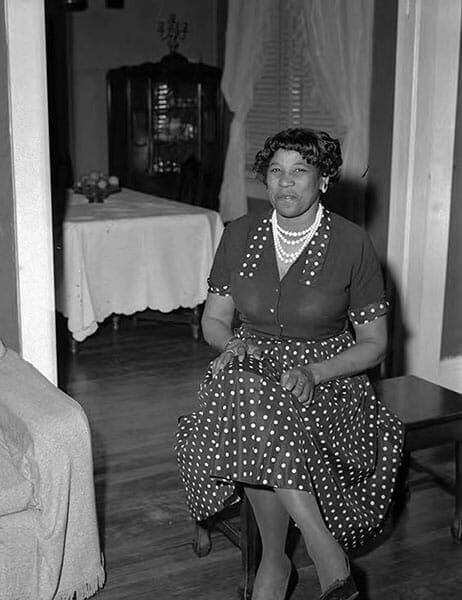 Amelia Boynton Robinson
Amelia Boynton Robinson (1911-2015) was a leading civil rights activist who played a key role in efforts that led to passage of the Voting Rights Act of 1965 and who was the first African American woman in Alabama to run for Congress. She is best known for her work in Selma, Dallas County, where she helped Martin Luther King Jr. establish his headquarters and helped plan and lead the march from Selma to Montgomery that came to be known as “Bloody Sunday.”
Amelia Boynton Robinson
Amelia Boynton Robinson (1911-2015) was a leading civil rights activist who played a key role in efforts that led to passage of the Voting Rights Act of 1965 and who was the first African American woman in Alabama to run for Congress. She is best known for her work in Selma, Dallas County, where she helped Martin Luther King Jr. establish his headquarters and helped plan and lead the march from Selma to Montgomery that came to be known as “Bloody Sunday.”
One of 10 children, Robinson was born August 18, 1911, in Savannah, Georgia. Both her mother and father were of African, German, and Native American descent. Robinson’s father, George Platts, was born in Brunson, South Carolina, in 1866, and her mother, Anna Eliza Hicks Platts, was born in 1874 in Beaufort, South Carolina. In her autobiography, Robinson describes her family life as “sheltered,” an environment where church and biblical teachings were emphasized.
Robinson started her college education at Georgia State College (now Savannah State) and after two years transferred and graduated from Tuskegee Institute (now Tuskegee University), in Tuskegee, Macon County, earning a degree in home economics. (She later studied at Tennessee State, Virginia State, and Temple University.) She had two teaching jobs in Georgia before she took a position with the U.S. Department of Agriculture (USDA) in Selma as the home demonstration agent for Dallas County. Robinson educated the county’s rural population about food production, nutrition, healthcare, and other subjects related to agriculture and homemaking.
While in Selma, Robinson met Samuel William Boynton, the county extension agent, in 1930. She shared Robinson’s passion for improving the lives of their African American neighbors, many of whom still worked on white-owned plantations as sharecroppers. Robinson and Boynton married in 1936 and had two sons, Bill Jr. and Bruce Carver, whose godfather was family friend George Washington Carver, the famed inventor and head of Tuskegee’s school of agriculture. From the late 1940s until the early 1960s, Boynton led the Dallas County Voters League (DCVL), which would play a central role in voter registration drives in Selma. The couple would work side by side for more than 30 years to bring voting rights, property ownership, and education to African Americans in poor, rural areas of Alabama.
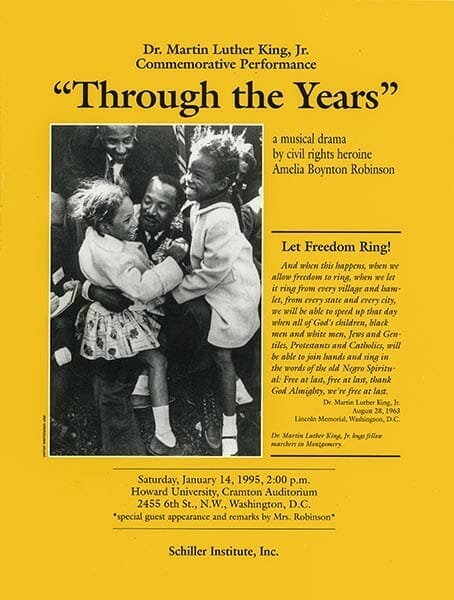 Through the Years by Amelia Boynton Robinson
In the mid-1930s, during the Great Depression, Robinson conceived the idea of building a community center for African Americans, as the local Selma community center excluded African Americans. When her efforts to secure government funding failed, she wrote a play, Through the Years, to bring hope to the local African American community and raise the funds for the center. The play tells the fictional life story of Joshua Terrell, a man born into slavery who overcomes his difficult life circumstances to eventually become a U.S. congressman. The character was inspired by the half-brother of Robinson’s father, Robert Hicks Smalls, a slave who later bought his freedom and became one of the first African American members of Congress, representing South Carolina during Reconstruction. Through the Years uses the African American spiritual, an unaccompanied style of song in the tradition of American slaves, to tell its story. The play was first performed in Selma at Hudson High School in 1936 and is still performed today across the world.
Through the Years by Amelia Boynton Robinson
In the mid-1930s, during the Great Depression, Robinson conceived the idea of building a community center for African Americans, as the local Selma community center excluded African Americans. When her efforts to secure government funding failed, she wrote a play, Through the Years, to bring hope to the local African American community and raise the funds for the center. The play tells the fictional life story of Joshua Terrell, a man born into slavery who overcomes his difficult life circumstances to eventually become a U.S. congressman. The character was inspired by the half-brother of Robinson’s father, Robert Hicks Smalls, a slave who later bought his freedom and became one of the first African American members of Congress, representing South Carolina during Reconstruction. Through the Years uses the African American spiritual, an unaccompanied style of song in the tradition of American slaves, to tell its story. The play was first performed in Selma at Hudson High School in 1936 and is still performed today across the world.
In 1954, Robinson met Martin Luther King Jr. and his wife, Coretta Scott King, in Montgomery at the Dexter Avenue Baptist Church, where King served as pastor. Her sister-in-law was a member at the church and invited her to meet King. She respected and followed the work King was doing, but it was not until January 1964 that they began working together.
By 1964, the civil rights movement had gained momentum, and Robinson and other DCVL members were at the forefront of the effort in Selma, despite the death of her husband the previous year. With violence and human rights abuses against African Americans escalating in Dallas County, Robinson and other members of the DCVL invited King and the Southern Christian Leadership Conference (SCLC) to Selma to help secure the right to vote for African Americans. Robinson then invited King and other civil rights leaders to set up the SCLC headquarters in her home and office, where they planned the Selma to Montgomery marches. That same year, on February 29, Robinson entered the Democratic race for a seat in the U.S. Congress. She hoped her participation would increase the number of African Americans registered to vote in her district, which at that time totaled five percent. She was the first woman, white or black, to run on the Democratic ticket in Alabama, and the first African American woman to run for Congress in the state. She won 10 percent of the vote.
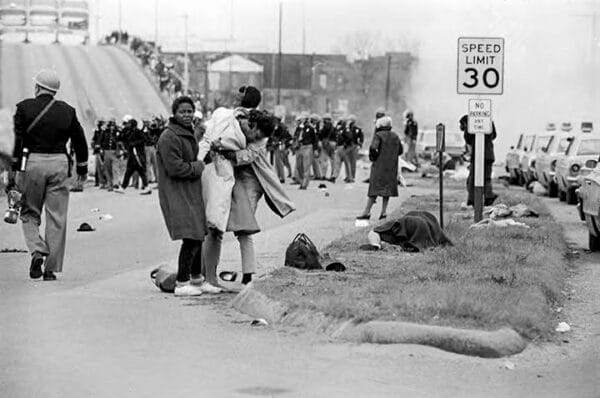 Amelia Boynton Robinson on Bloody Sunday
The following year, Robinson helped organize and lead the aborted Selma to Montgomery march on March 7, 1965, that became known as Bloody Sunday. She also was one of 17 marchers hospitalized after police and Alabama State Troopers met the approximately 600 marchers with tear gas and billy clubs at the Edmund Pettus Bridge, only six blocks into the march. A photograph of Robinson after she was gassed and beaten appeared on the cover of several prominent newspapers and news magazines, drawing national and international attention to the civil rights movement. When the Voting Rights Act was signed into law August 6, 1965, President Lyndon Johnson invited Robinson to attend as a guest of honor.
Amelia Boynton Robinson on Bloody Sunday
The following year, Robinson helped organize and lead the aborted Selma to Montgomery march on March 7, 1965, that became known as Bloody Sunday. She also was one of 17 marchers hospitalized after police and Alabama State Troopers met the approximately 600 marchers with tear gas and billy clubs at the Edmund Pettus Bridge, only six blocks into the march. A photograph of Robinson after she was gassed and beaten appeared on the cover of several prominent newspapers and news magazines, drawing national and international attention to the civil rights movement. When the Voting Rights Act was signed into law August 6, 1965, President Lyndon Johnson invited Robinson to attend as a guest of honor.
In 1969, Robinson married Bob W. Billups, a musician who later became an electronics technician. The couple lived in New York City a short time before returning to Selma. After only four years of marriage, he drowned in a tragic boating accident. Robinson then reconnected with Tuskegee classmate and fellow choir member, James Robinson. Once they were married, she moved to Tuskegee, a place and institution she has called important in her personal life.
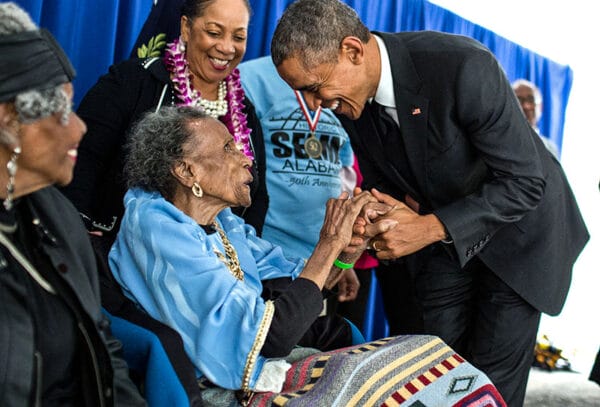 Pres. Barack Obama and Amelia Boynton Robinson
After James Robinson’s death in 1988, Robinson remained in Tuskegee and continued her work in civil and human rights on a national and international level. She was Vice Chair of the Schiller Institute, a non-profit, international organization that bases its views on the writings of German philosopher Friedrich Schiller (1759-1805). In 1990, Robinson received the Martin Luther King Jr. Freedom Medal in honor of her life’s work for the advancement of human rights. The Schiller Institute published Robinson’s autobiography, Bridge Across the Jordan, in 1991. In 2015, she was honored by Pres. Barack Obama during his State of the Union Address and her role in the voting rights march was brought to life on the screen in the film Selma. In March of that year, she attended the 50th anniversary memorial to the march in Selma. Robinson died on August 26, 2015, in Montgomery.
Pres. Barack Obama and Amelia Boynton Robinson
After James Robinson’s death in 1988, Robinson remained in Tuskegee and continued her work in civil and human rights on a national and international level. She was Vice Chair of the Schiller Institute, a non-profit, international organization that bases its views on the writings of German philosopher Friedrich Schiller (1759-1805). In 1990, Robinson received the Martin Luther King Jr. Freedom Medal in honor of her life’s work for the advancement of human rights. The Schiller Institute published Robinson’s autobiography, Bridge Across the Jordan, in 1991. In 2015, she was honored by Pres. Barack Obama during his State of the Union Address and her role in the voting rights march was brought to life on the screen in the film Selma. In March of that year, she attended the 50th anniversary memorial to the march in Selma. Robinson died on August 26, 2015, in Montgomery.
Additional Resources
Robinson, Amelia Boynton. Bridge Across the Jordan. Washington, D.C.: Schiller Institute, 2003.
